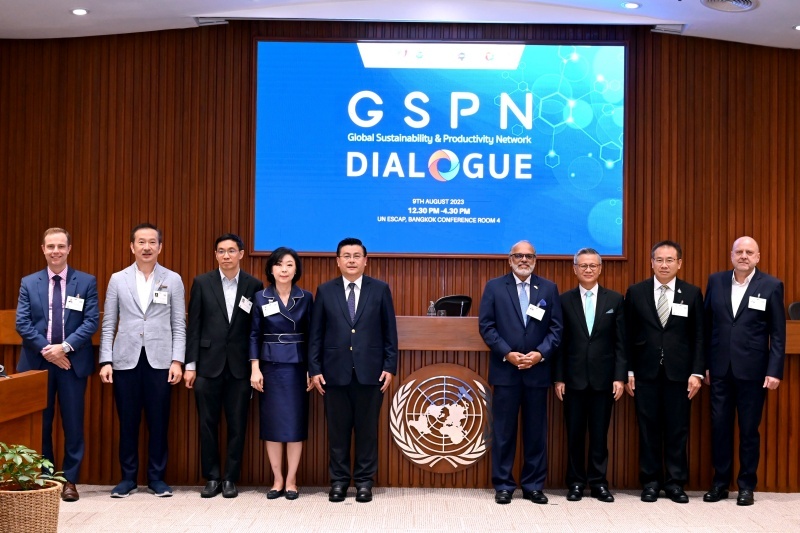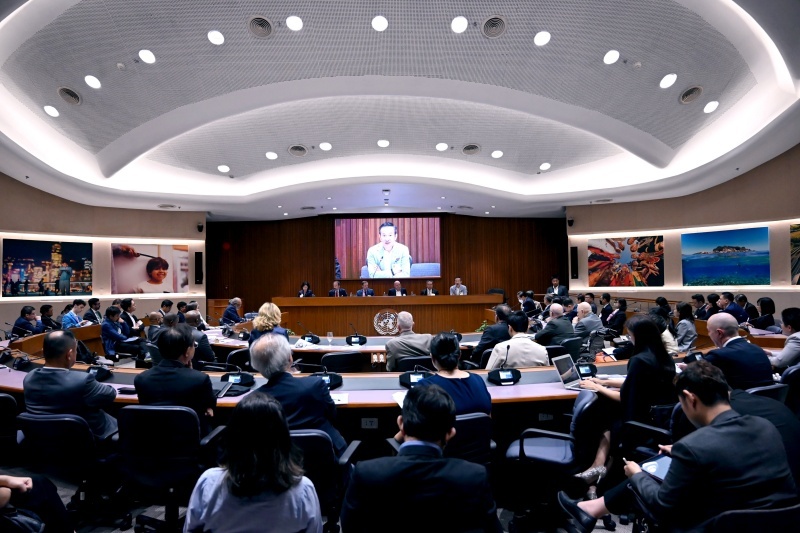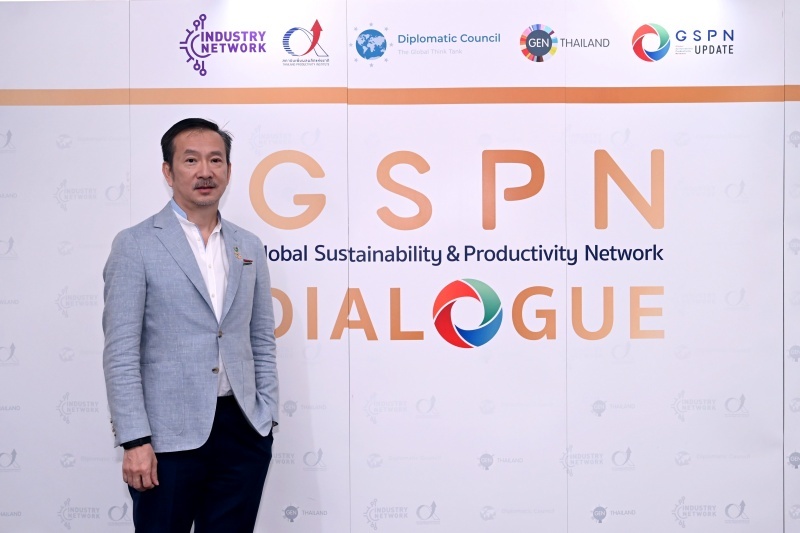10 August 2023
Bangchak Group CEO Joins 1st Global Sustainability & Productivity Network Dialogue Addressing Challenges Posed by Global Crisis Impacting Businesses, Focusing on Sustainable Strategies

Chaiwat Kovavisarach, Group Chief Executive Officer and President, Bangchak Corporation Public Company Limited รwas recently invited to be a panelist on the topic of "Collaborative Approaches to Achieving SDGs: Case Studies and Lessons from Bilateral and Multilateral Cooperation" and shared the experiences of Bangchak Group as a representative of the private sector during the 1st Global Sustainability & Productivity Network Dialogue. The event was organized by the National Productivity Institute in collaboration with the Diplomatic Council and GEN THAILAND and held at the UNESCAP building. Other participants in the panel discussion included H.E. Paolo Dionisi, Ambassador of Italy to the Kingdom of Thailand, Mr. Michael Helleman, Senior Commercial Ambassador and Minister-Counsellor, Australian Embassy in Thailand, and Dr. Janekrishna Kanatharana - Executive Vice President Industry and Community Engagement, National Science and Technology Development Agency (NSTDA).
Chaiwat mentioned the integration of the United Nations Sustainable Development Goals (UNSDGs) and Environmental, Social, and Governance (ESG) into Bangchak’s business operations and giving priority to business innovations in tandem with social and environmental responsibility all throughout the past. Bangchak was one of the co-founding organizations of the UN Global Compact Thailand in 2016. Moreover, Bangchak also prioritizes improving efficiency, increasing productivity, promoting, and supporting developments in innovation. Bangchak Refinery was also the sole recipient of the Thailand Quality Award in 2022.
Moreover, he explained how the BCP316 NET plan will help Bangchak to achieve the target of Net Zero GHG Emissions by 2050, which embraces production efficiency enhancements, investments in innovation that boost productivity and reduces the carbon footprint, natural sequestration, green businesses expansion, and the production of sustainable aviation fuel (SAF) from used cooking oil, that addresses business opportunities and the reduction of greenhouse gas emissions. This also includes the creation of a low-carbon ecosystem through the Carbon Markets Club.
Chaiwat concluded by stating that global economic growth has depended on fossil fuels for over 100 years, an immediate shift to clean energy is just not possible. Despite the development of green technologies and clean energy in recent years, they are not yet able to totally replace fossil fuels. Driving the transition to clean energy by the private sector alone is not possible. The role of the government is crucial in providing incentives or regulations to expedite the energy transition process, such as establishing standards for carbon credit trading.
The dialogue was organized to allow various sectors to convene and deliberate solutions to combat the global crisis impacting businesses. The focus was on approaches to create sustainability, process improvements in productivity enhancements, raising awareness on efficient resource usage, benefiting from technological advancements, operating in a highly effective manner, and achieving success. Many representatives were also in attendance from the public and private sectors, ambassadors, productivity experts, researchers, academics, and members of civil society.





